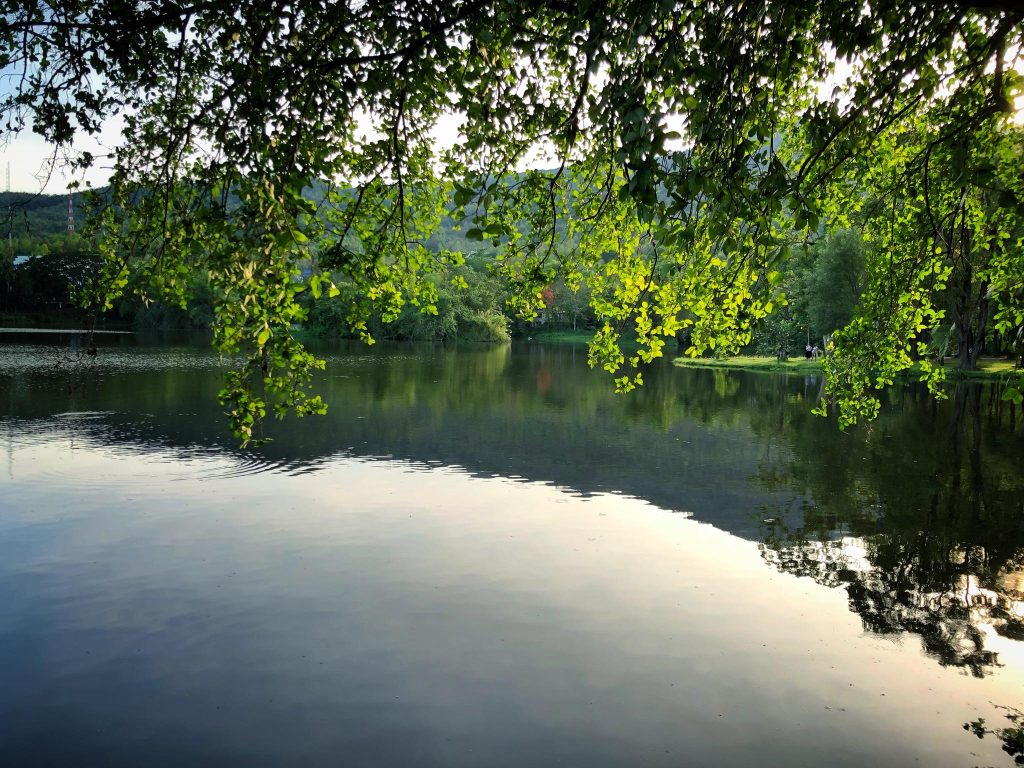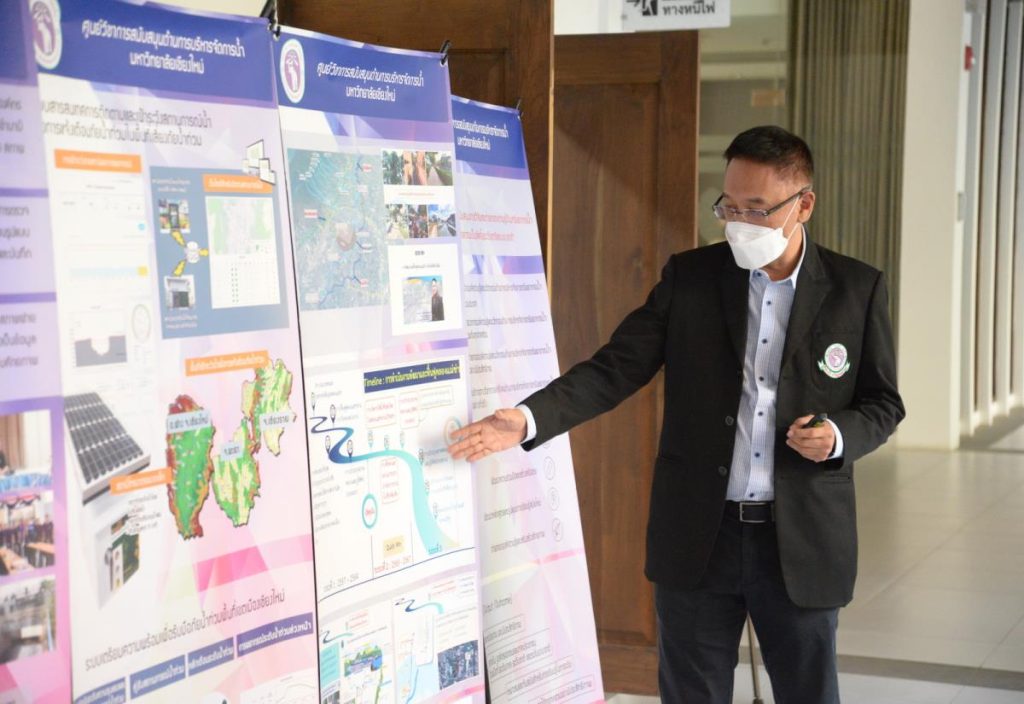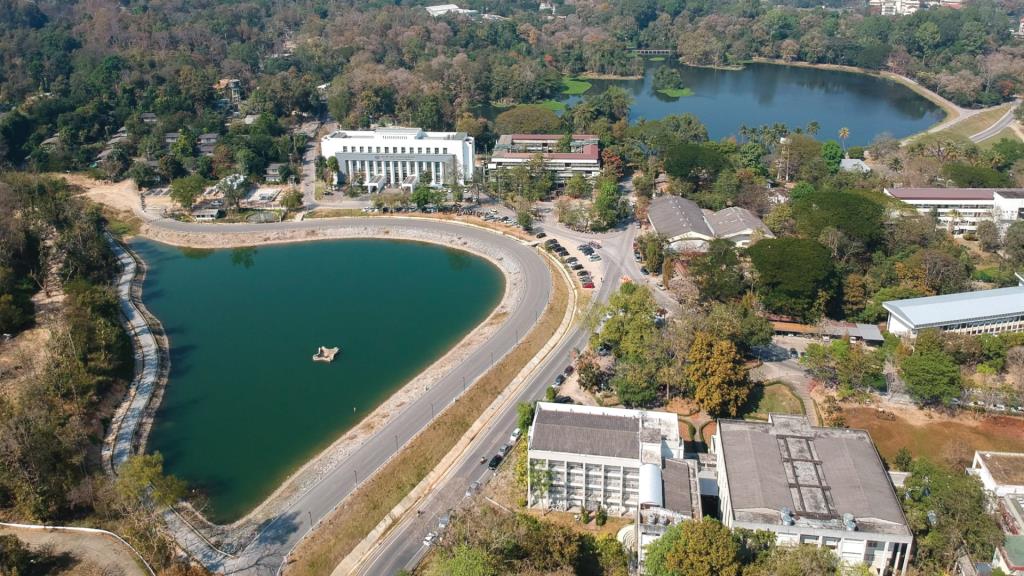The Center for Water Management Support’s grassroots project and activities at Chiang Mai University.

1. Principles and Reasons (Summarized):
The Center for Water Management Support at Chiang Mai University serves as a central hub for gathering knowledge and expertise in water management and environmental conservation. Its mission includes the development of water resource databases, the promotion of sustainable research and education in water resource management, and collaboration with all sectors to advance academic initiatives that benefit and align with Chiang Mai University’s strategic goals.

2. Objectives :
2.1 To serve as a comprehensive academic support center for water management and establish a water resource database.
2.2 To promote and develop research and education for the sustainable management of water resources.
2.3 To support and collaborate with all relevant academic sectors related to water resource management.
2.4 To disseminate information, raise awareness, and provide essential academic knowledge while formulating policy recommendations for the sustainable development of water resource management.

4. Target Group :
Primary Target Group: Academic community, including professors, researchers, and students, as well as government agencies.
Secondary Target Group: General public, local communities, and surrounding populations in the operational areas.”
5. Target Area :
The target area is within the upper northern region of Thailand, specifically in the vicinity of Chiang Mai University, within the urban area of Chiang Mai, and along the Mae Kha Canal
6. The steps for implementation include :
Activity 1: Central Operations of the Center for Water Management Support at Chiang Mai University.
Activity 2: Rainfall Data Analysis for the Development of IDF (Intensity-Duration-Frequency) Curves and DDF (Depth-Duration-Frequency) Curves by District in the Upper Northern Region.
Activity 3: Maintenance of Small-Scale Telemetric Water Level Measurement Stations to Support Flood Warning Systems in the Upper Northern Region.
Activity 4: Survey and Analysis of Data to Create Flood Hazard Maps in the Urban Area of Chiang Mai.
Activity 5: Improvement of Artificial Neural Network Model Structures for the Development of the CM Water Forecast Application.
Activity 6: Repair and Enhancement of Flood Level Warning Systems and Numeric Displays at 120 Locations in the City of Chiang Mai.
Activity 7: Development of Public Relations Media for Introducing Water Law Data.
Activity 8: Monitoring the Growth of Cyanobacteria and Water Quality in the Mae Kha Canal.
Activity 9: Community Engagement and Awareness Building for the Development of the Mae Kha Canal Area.
Activity 10: Mapping Water Resources and Establishing a Cost Database for the Mae Kha Canal in Chiang Mai Province.
Activity 11: Study of the Biodiversity of Large Non-Vertebrate Animals and the Dispersal of Macroinvertebrates as an Indicator of the Ecological Health of the Mae Kha Canal System.
7. Duration of Operation: 1 year, 12 months (May 2566 – April 2567)
8. Outputs and Key Performance Indicators (KPIs) :
The number of communities trained in knowledge transfer related to water resource management, IDF Curve and DDF Curve datasets, flood hazard maps, artificial neural network models for water level prediction and flood alerts, public relations media introducing water law data, data on cyanobacteria occurrences in the Mae Kha Canal, water quantity and quality datasets for the Mae Kha Canal, technology readiness level (TRL) of 3 or higher for industry-ready technology, and the percentage of Carbon Neutral University.
9. Outcome :
9.1 Being the focal point of the educational organization for comprehensive academic support in sustainable water resource management.
9.2 Effective engagement of university professors, researchers, and units in water resource management.
9.3 Establishing a network of specialized institutions for collaboration at the regional, national, and international levels.
9.4 Ensuring that water resource management is appropriate and up-to-date for learning at all levels.
9.5 Efficiently delivering academic services and knowledge transfer in water resource management to all relevant sectors.


